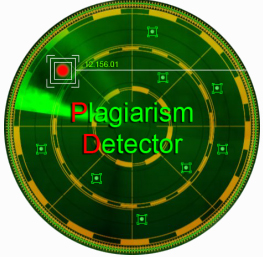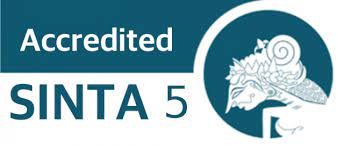ANALYSIS OF HUMOR IN THE BIG BANG THEORY BY USING RELEVANCE THEORY: A PRAGMATIC STUDY
Abstract
Humor has been studied from different disciplinary viewpoints including philosophy, psychology, sociology, literature, rhetoric, linguistic and others by many scholars and experts. Thus, with the development of humor study, the linguistic perspective is becoming the mainstream of thoughts because it is more applicable and more systematic. In that case, to understand the pattern of communication in humor, the study of pragmatic is needed. Therefore, this research is aimed to analyze humor that are produced in The Big Bang Theory (a famous sitcom in America) from the perspective of cognition and communication. The analysis is done by applying descriptive method and using Sperber and Wilson’s theory of relevance theory. As the result of the analysis, it shows that there is a lot of humors that are based on relevance communication so that the application of relevance theory must be applied in order to understand the context of the humor. Further, the writer also noticed that the form of verbal humor used in The Big Bang Theory mostly showing about common problems and drama situation such friendship, job and daily life. In addition, regarding to the relevance theory of communication, the writer also noticed that the mechanism of humor in The Big Bang Theory is using the moment of optimal relevance of cognitive principle which means that when the audience has a common presumption of a context of conversation, the speaker or the characters in the sitcom is producing or uttering something unexpected in order to make the audience laugh or joy in humor.
Keywords: context of humor, humor, pragmatic, relevance theory
Full Text:
PDFReferences
Afrianto et al. 2014. Transitivity Analysis on Shakespeare’s Sonnets. IOSR Journal Of Humanities And Social Science (IOSR-JHSS), Vol 19(1), 78-85.
Alhamzi, Mustafa. 2015. On Verbal Irony in Arabic: A Relevance Theory Perspective. Journal of Literature, Language and Linguistics, Vol 16(1), 102-113.
Amelia, Dina., & Daud, Jepri. 2020. Freudian Tripartite on Detective Fiction: The Tokyo Zodiac Murders. LANGUAGE LITERACY Journal of Linguistics Literature and Language Teaching, 4(2), 299-305.
Ayu, Mutiara. 2018. Interactive Activities for Effective Learning in Overcrowded Classrooms. LINGUIST Journal of Linguistics and Language Teaching, Vol 4(2), 1-6.
Carston, R. 2008. Linguistic communication and the semantics/pragmatics distinction. London: University College London.
Puspita, D., & Pranoto, B. E. (2021). The attitude of Japanese newspapers in narrating disaster events: Appraisal in critical discourse study. Studies in English Language and Education, 8(2), 796-817.
Dynel, M. 2009. Beyond a Joke: Types of Conversational Humour. International Journal of Linguistics and Language Compass, volume 3, pp. 1284 – 1299.
Firdaus, S. F., Indrayani, L. M., & Soemantri, Y. S. (2020). Analysis of Jokowi’s Commissive Speech Acts in 2014 and 2019 Inaugural Address: A Pragmatic Study. TEKNOSASTIK, 18(2), 82-89.
Fitri, E., & Qodriani, L. U. 2016. A Study on Flouting Maxims in Divergent Novel. TEKNOSASTIK, 14 (1), 32-40.
Fitri, Ernawati and Qodriani, L. U. 2016. A Study on Flouting Maxims in Divergent Novel. Teknosastik, 14(1), pp. 32-40.
Gardner, S. 2008. Three Ways Humor Helps in The Language Classroom. Journal of National Association for Language Education, volume 6, number 32
Gauché, Ana Maria. 2017. A Relevance-Theoretic Analysis of Selected South African English Pragmatic Markers and Their Cultural Significance. Stellenbosch University.
Gulö, Ingatan., & Rahmawelly. 2018. An Analysis of Omission in Students’ English Writings. Teknosastik, Vol 16 (2), 55-59.
Hu, Shuqin. 2013. A Relevance Theoretic Analysis of Verbal Humor in The Big Bang Theory. Studies in Literature and Language, volume 7, no. 1, pp. 10 – 14
Hutauruk, M., & Puspita, D. 2020. A Metapragmatic Analysis: A Study Of Pragmatic Failure Found In Indonesian Efl Students. Linguistics and Literature Journal, 1(2), 62-69.
Inayati, A. 2014. Flouting Maxims in Particularized Conversational Implicature. International Journal of Language Learning and Applied Linguistics World (IJLLALW), 6(3), 78-89.
Istiani, R., & Puspita, Dian. (2020). Interactional metadisocurse used in Bloomberg international debate. Linguistics and Literature Journal, 1(1), 13-20.
Kuswoyo, Heri. 2016. Thematic Structure in Barack Obama’s Press Conference: A Systemic Functional Grammar Study. Advances in Language and Literary Studies, Vol 7(2), 257-267.
Linuwih, E. R., & Trihastutie, N. 2020. Digital Entertainment to Support Toddlers's Language and Cognitive Development. TEKNOSASTIK, 18(1), 1-14.
Minewaki, S., Shimada, K., & Endo, T. 2005. Interpretation of utterances based on relevance theory: Toward the formalization of implicature with the maximum relevance. In Proceedings of the 9th Conference of the Pacific Association for Computational Linguistics, (pp. 211-216).
Mandasari, Berlinda., & Aminatun. 2019. Uncovering Students’ Attitude Toward Vlogging Activities In Improving Students’ Speaking Ability. Premise : Journal of English Education and Applied Linguistics, Vol. 8 No 2, 214-225.
Mustafa, A. 2015. On Verbal Irony in Arabic : A Relevance Theory Perspective. Journal of Literature Language and Linguistics, 16.
Onyancha, Monicah. 2015. A Pragmatic Approach to Comedy: A Case Study of The Character of Kansime’s Use of Irony in Creating Humour. Nairobi: University of Nairobi
Pranoto, B. E., & Suprayogi . 2020. Incorporating 9GAG Memes to Develop EFL Learners' Speaking Ability and Willingness to Communicate. IJEE (Indonesian Journal of English Education), 7(2), 130-144.
Pranoto, B. E., & Suprayogi. 2020. Insights from Students’ Perspective of 9GAG Humorous Memes Used in EFL Classroom. Advances in Social Science, Education and Humanities Research, 546, 72-76.
Rido et. al. 2020. Interaction Management Strategies in English Literature Lectures in Indonesian University Setting. Indonesian Journal of EFL and Linguistics, Vol. 5 No. 2, 315-337.
Samanik. 2018. Teaching English Using Poetry: An Alternative to Implement Contextual Teaching and Learning. Journal of ELT Research, Vol 3(1), 21-28.
Sari, F. M., & Lulud, O. 2021. Undergraduate Students’ Views on the Use of Online Learning Platform during Covid-19 Pandemic. TEKNOSASTIK, Vol 19(1), 41-47.
Sinclair, M. 1995. Fitting pragmatics into the mind: Some issues in mentalist pragmatics. Journal of Pragmatics. Volume 23 number 5, pp. 509–539.
Sperber, D. & Noveck, I. 2004. Experimental Pragmatics. London, UK: Palgrave MacMillan.
Sperber, D. & Wilson, D. 1995. Relevance: Communication and Cognition. Oxford, UK: Blackwell Publishing Ltd.
Sperber, D. & Wilson, D. 2012. Introduction: Pragmatics. Cambridge, UK: Cambridge University Press.
Suprayogi, & Pranoto, B.E. 2020. Virtual Tourism Exhibition Activity in English for Tourism Class: Students’ Perspectives. Celtic: A Journal of Culture, English Language Teaching, Literature, & Linguistics, 7(2), 199-207.
Vivona, B. D. 2014. “To laugh or not to laugh”: Understandings of the appropriateness of humour and joking in the workplace. The European Journal of Humour Research, volume 2, no. 1, pp. 1-18.
Wang, J. 2016. Research on the Humor in Friends from the Perspective of Relevance Theory. International Conference on Electronics, Mechanics, Culture and Medicine.
DOI: https://doi.org/10.33365/llj.v2i1.292
Refbacks
- There are currently no refbacks.
Linguistics and Literature Journal
Published by Universitas Teknokrat Indonesia
Organized by Faculty of Arts and Education
Jl. Zainal Abidin Pagaralam, No.9-11, Labuhanratu, Bandarlampung, Indonesia
Telepon : 0721 70 20 22
W : http://jim.teknokrat.ac.id/index.php/linguistics_and_literature/index










